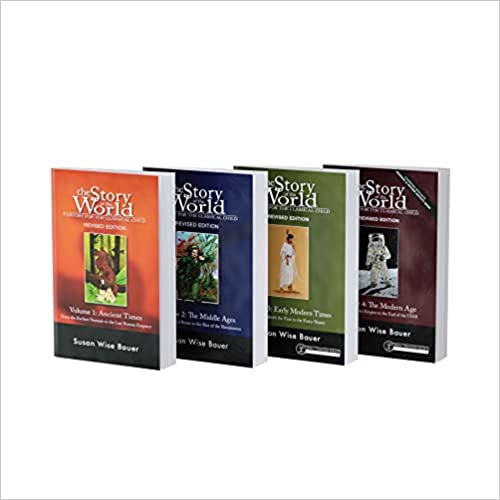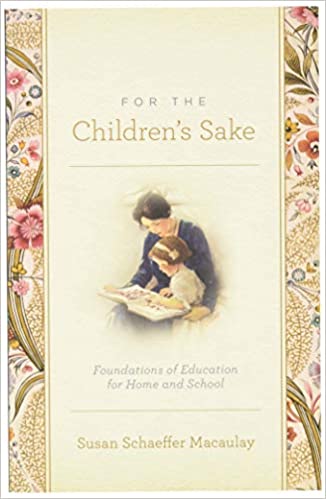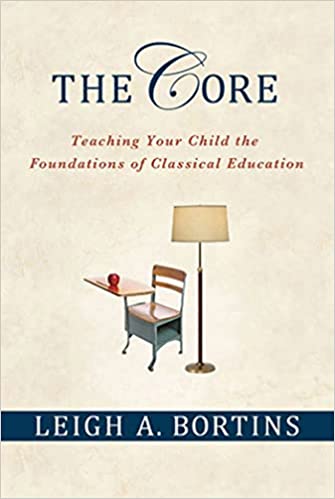The Liberal Arts Tradition: A Philosophy of Christian Classical Education (Revised Edition)
The Liberal Arts Tradition: A Philosophy of Christian Classical Education introduces readers to a paradigm for understanding a classical education that transcends the familiar 3-stage pattern of grammar, logic, and rhetoric. Instead, this book describes the liberal arts as a central part of a larger and more robust paradigm of classical education that should consist of piety, gymnastic, music, liberal arts, philosophy, and theology. The Liberal Arts Tradition also recovers the means by which classical educators developed more than just intellectual virtue (by means of the 7 liberal arts) but holistically cultivated the mind, body, will, and affections. This is a must-read for educators who want to take a second big step toward recovering the tradition of classical education.
More info →Story of the World, Text Bundle, Paperback Revised Edition: History for the Classical Child: Ancient Times through The Modern Age
Available in paperback, this four-volume narrative world history tells the story of the entire globe, from the earliest nomadic humans all the way to the Persian Gulf war at the end of the twentieth century. It now includes the Revised Edition of Volume 4.
Told in an entertaining, engaging style, The Story of the World uses the stories of women and men, countries and empires, rebels and rulers, peasants and presidents, to walk young readers through a continuous, chronological account of human events. The reading level of each volume increases slightly in difficulty, growing along with the developing ability of the children following the narrative thread. Volume 1 is a read-aloud for grades 1-2, an independent read for stronger readers in grades 2-5; Volume 2 is pitched towards grades 2-6; Volume 3 (revised in 2020), towards grades 3-6; and Volume 4 (revised in 2021), tackling the difficult topics of modern wars, has a reading level of grades 4-8. hundreds of black and white illustrations
More info →For the Children’s Sake: Foundations of Education for Home and School
Every parent and teacher wants to give his or her children the best education possible. We hope that the education we provide is a joyful adventure, a celebration of life, and preparation for living. But sadly, most education today falls short of this goal.
For the Children's Sake is a book about what education can be, based on a Christian understanding of what it means to be human-to be a child, a parent, a teacher-and on the Christian meaning of life. The central ideas have been proven over many years and in almost every kind of educational situation, including ideas that Susan and Ranald Macaulay have implemented in their own family and school experience.
More info →The Core: Teaching Your Child the Foundations of Classical Education: Teaching Your Child the Foundations of Classical Education
In the past, correct spelling, the multiplication tables, the names of the state capitals and the American presidents were basics that all children were taught in school. Today, many children graduate without this essential knowledge. Most curricula today follow a haphazard sampling of topics with a focus on political correctness instead of teaching students how to study. Leigh Bortins, a leading figure in the homeschooling community, is having none of it. She believes that there are core areas of knowledge that are essential to master. Without knowing the multiplication tables, children can't advance to algebra. Without mastery of grammar, students will have difficulty expressing themselves. Without these essential building blocks of knowledge, students may remember information but they will never possess a broad and deep understanding of how the world works. In The Core, Bortins gives parents the tools and methodology to implement a rigorous, thorough, and broad curriculum based on the classical model, including:
- Rote memorization to cement knowledge
- Systematic learning of geography, historical facts, and timelines
- Reading the great books and seminal historical documents instead of adaptations and abridged editions
- Rigorous training in math and the natural sciences
The Tempest (Folger Shakespeare Library)
William Shakespeare was born in April 1564 in the town of Stratford-upon-Avon, on England’s Avon River. When he was eighteen, he married Anne Hathaway. The couple had three children—an older daughter Susanna and twins, Judith and Hamnet. Hamnet, Shakespeare’s only son, died in childhood. The bulk of Shakespeare’s working life was spent in the theater world of London, where he established himself professionally by the early 1590s. He enjoyed success not only as a playwright and poet, but also as an actor and shareholder in an acting company. Although some think that sometime between 1610 and 1613 Shakespeare retired from the theater and returned home to Stratford, where he died in 1616, others believe that he may have continued to work in London until close to his death.
More info →






